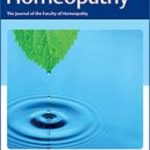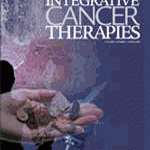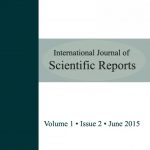In-Vitro Growth Kinetics of Mesenchymal Stem Cells in Cytotoxicity Tests Using Low-Diluted Viscum Album

Introduction - The use of mesenchymal stem cells (MSC) in cytotoxicity tests is an in-vitro alternative model for predicting initial doses. Homeopathic medicines may stimulate the immune system to combat a pathology effectively and have been used for over two centuries. Viscum album (VA) extracts are widely used in the treatment of cancer, due to their immunomodulatory, cytotoxic and pro-apoptotic properties. Objective - This study aimed to evaluate the in-vitro growth kinetics of canine MSC in relation to cytotoxicity, cell differentiation and expression of pluripotentiality markers, using a VA preparation at the D1D2 (1×10−1, 1×10−2 potency (VAD1D2). Methods - MSC were obtained from adipose tissue sampled from a healthy dog that was undergoing an elective veterinary procedure and with its owner’s permission. The experiments were performed in three groups: MSC treated with VAD1D2 or diluent or untreated (control). The cytotoxicity was evaluated by MTT assay. The differentiation was induced in three lineages, and apoptotic cell labeling was performed by an Annexin-V test. Results - At the concentration of 10 μL/mL of VA, the number of cells after in-vitro culture was maintained when compared with the control (untreated) group. A significant and gradual decrease in cell viability was recorded as VA concentrations increased. The apoptosis analysis showed that VA at 20 μL/mL presented absolute percentages of initial apoptosis twice as high as at 10 μL/mL, which was similar to the control (untreated group). Conclusion - The results suggest that the use of efficient methods to assess the in-vitro cytotoxicity of VA-based homeopathic medicines using MSC lineages may predict the potential action at different concentrations. These findings demonstrated that VAD1D2 interferes with canine MSC growth kinetics.







Lascia un commento
Devi essere connesso per inviare un commento.